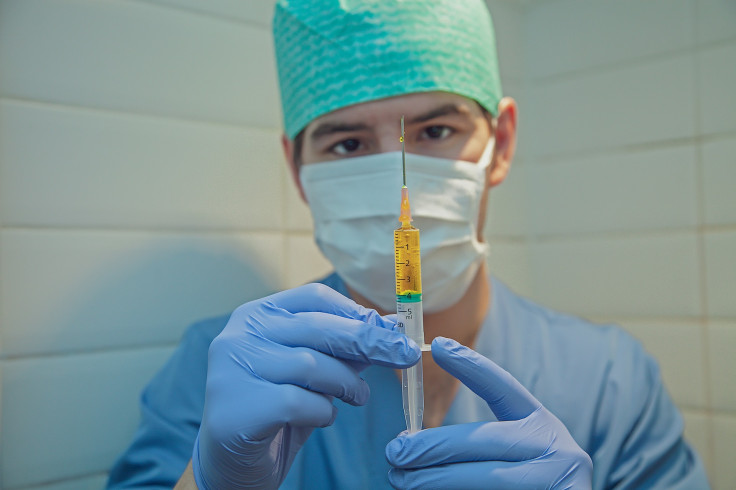Scared Of Needles? A Puff Of Air Could Deliver Your Future Vaccines
A great number of people skip vaccinations because they fear needles. Here is some good news for them, as new research opens the possibility of a novel system that promises a less painful way of delivering vaccines.
The research presented at a meeting of the American Chemistry Society this month revealed future vaccines could be delivered with a puff of air rather than a needle.
What is Trypanophobia?
Trypanophobia is an extreme fear of medical procedures that involve needles. According to the estimates from the Centers for Disease Control and Prevention (CDC), two in three children and one in four adults suffer from an overwhelming fear of needles.
People with trypanophobia show symptoms like dizziness, palpitations, insomnia, vomiting, increased blood pressure, and panic attacks. Around 16% of adults avoid getting vaccines because of their phobia of needles.
Why are vaccines important?
According to the WHO, vaccinations have prevented around 3.5-5 million deaths every year from diseases like diphtheria, tetanus, pertussis, influenza, and measles. Immunizations have also prevented more than 20 life-threatening diseases. It has successfully eradicated smallpox in 1980, and rinderpest in 2011.
Future vaccine delivery system
Researchers believe the new vaccine delivery system will revolutionize vaccination programs across the world. The new system comprises powdered vaccines that require no refrigeration and uses compressed gas for delivery.
The experience will be just "like you got hit with a Nerf bullet" the project's lead researcher, Jeremiah Gassensmith, the lead researcher at the University of Texas reportedly said.
Gassensmith said the project idea came out of pandemic-induced boredom. She bought a compressed gas-powered jet injection system during the lockdown to while away the time. After the classes reopened, the system was handed over to a graduate student, Yalini Wijesundara, to see what can be done with it.
The jet injection systems were previously used in the military, but the process had the risk of spreading infectious diseases due to the splashback of fluid.
Gassensmith and her team then modified the injectors to fire solids, so they could deliver cargo encased in metal-organic frameworks or MOFs. By combining the jet injector with the lab's existing work on MOFs, a MOF-Jet was created.
The team is now trying to expand their research to develop their system, so that it can deliver chemotherapeutics and adjuvants. They believe their system can be useful in treating melanoma, as MOF-Jet can more effectively disperse the therapeutic material over the diseased area than a needle.

Published by Medicaldaily.com



























